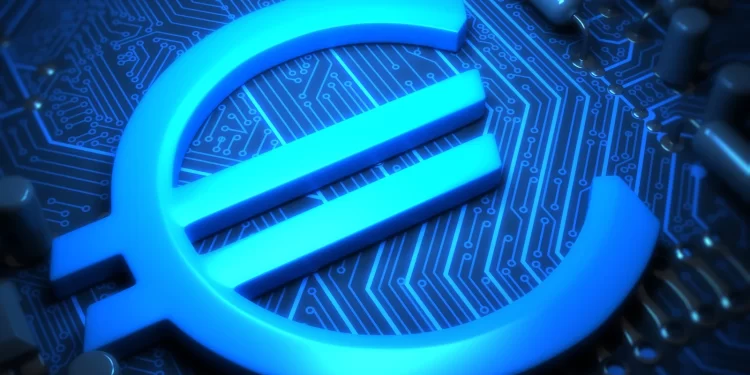Payments system are undergoing a disruptive transformation as people are increasingly adopting digital means of payment. This development, therefore, stresses the need for effective participation of Central Banks in the digital transition process.
The European Central Bank (ECB), after launching the digital euro project one year ago, is currently designing the digital euro to deepen it participation in digital payments system and to also preserve the role of the central bank (public) money as the monetary anchor for the payment system.
This is according to the information provided by the ECB in a publication titled “The case for a digital euro: key objectives and design considerations,” July 2022.
The ECB established that a hybrid payment model which integrated “public money” and “private money” has served society well: the central bank provides a monetary base, i.e. cash for individuals and central bank deposits for banks (public money), while the private sector provided payment solution such as credit cards, based on commercial bank deposits (private money).
The stability of this hybrid model in which private money is backed by public money emphasizes the need for a state-backed digital currency.
The digital euro which will be a Central Bank Digital Currency (CBDC) in the euro area will offer benefits in terms of efficiency, scalability, liquidity, and safety, and could be used to facilitate cross-border payments. It can thus enhance the attractiveness of the euro and its use as a global payment unit.
The need to create a digital euro in the euro area is based on the risks posed by digital currencies despite their enormous potential in financial innovation and inclusion.
The ECB said, “if cash is used less and less, public money could ultimately lose its role as the monetary anchor in Europe”.
“A digital payments ecosystem without a strong monetary anchor would create confusion about what qualifies as money.”
“Digital private sector solutions tend to be dominated by a handful of providers that benefit from network effects, where the solutions they offer become more useful the more people use them. This dominance could be magnified by the ability of big tech companies to use their large existing customer bases to expand quickly, increasing the risk of market-abusive behavior. And, as most of these companies are headquartered outside the European Union, it could exacerbate the risk of our European payments market being dominated by non-European solutions and technologies.”
The ECB noted that In the absence of a digital euro, the emergence of other central bank digital currencies (CBDCs) in large economies and their cross-border use could undermine the international role of the euro
What the European Central Bank Plans to Achieve With the Digital Euro
In accompanying the ongoing digital transition the ECB wants to create a digital euro that will serve as a means of payment, not as a form of investment, thereby fostering innovation, increasing the efficiency of payments, and supporting the overall economic efficiency of the European Union.
According to the ECB, “the digital euro must respond to the needs of its users. Research has shown that what users value most is wide acceptance, ease of use, low costs, high speed, security, and consumer protection. Meanwhile, merchants, who also seek low costs and ease of use, want the digital euro to be integrated with existing systems.”
“The digital euro should also benefit people who so far have limited access to digital payments and thereby support financial inclusion.”
“The protection of privacy will be of the highest standard. People should be able to choose how much information they want to disclose – so long as they comply with prevailing laws.”











